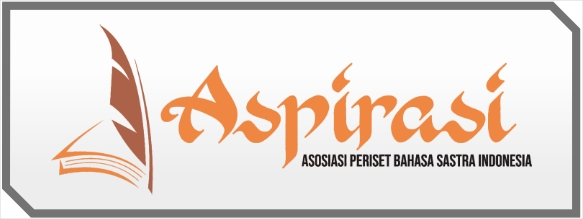Implementation of the Principal's Strategy in Development Talents and Interests of Students (Multi-Site Study at MTsN 3 Nganjuk and MTsN 2 Kediri City)
DOI:
https://doi.org/10.55606/ijel.v1i1.17Keywords:
Implementation, Madrasa principal strategy , Talent , Interests , StudentsAbstract
The research in this dissertation is motivated by the phenomenon of the development of quality educational institutions that have a good process to create high student achievement, design a good curriculum taught by qualified teachers and good products as evidenced by the students being able to compete with superior schools. inside and outside the city so that, with a good process, Madrasa are no longer underestimated and even become the community's main choice of superior schools. The research approach uses qualitative methods. Data collection techniques are participant observation, in-depth interviews and documentation. The data analysis techniques used are 1) single case data analysis, 2) cross-site analysis. From the results of this study, it can be concluded that: ( 1) The formulation of the madrasa principal's strategy in developing students' talents and interests at MTsN 3 Nganjuk and MTsN 2 Kediri City is carried out by : formulating the vision and mission of the madrasa, determining the goals of planning for the development of student talents and interests that have been carried out by the madrasa, mapping talents and interests based on abilities and fields of study . Recruitment of basic education students with implementation of strict selection assessment taking into account several assessments, namely the recruitment of the academic path through with report cards and Olympics. Non-academic selection recruitment is seen from the results of students' memorization of the Koran, sports, arts and so on . (2) The implementation of the madrasa principal's strategy in developing students' talents and interests at MTsN 3 Nganjuk and MTsN 2 Kediri City is carried out by: 1) Programs of extracurricular activities provided for all students according to their potential, interests, talents, and abilities, so that students can develop maximally. 2) Supporting activities through routine and spontaneous activities that are carried out optimally can develop students' talents and interests.
References
Akdon. (2016). Strategic Manajement for educational Management. Bandung: Alfabeta.
Ali, M., & Asrori, M. (2014). Psikologi Remaja: Perkembangan Peserta Didik,. Jakarta: PT bumi aksara.
Anwar, D. (2007). Kamus Lengkap Bahasa Indonesia. Surabaya: Amelia.
Arikunto, S. (2009). Manajemen Pendidikan. Yogyakarta: Aditya Media.
Asmani, J. M. (2015). Managemen Efektif Marketing Sekolah Strategi Menerapkan Jiwa Kompetisi dan Sportivitas Untuk Melahirkan Sekolah Unggulan. Yogyakarta: Diva Pres.
Bogdan, R. C., & Biklen, S. K. (1998). Qualitative Research for Education: An Introduction to Theory and Methods. Boston: Allyn and Bacon, inc.
Djamarah, S. B. (2010). Guru & Anak Didik. Jakarta: PT Rineka Cipta.
Fitri, A. Z., & Haryanti, N. (2020). Metodologi Penelitian Pendidikan. Malang: Madani Media.
Gie, T. L. (1998). Cara Belajar yang Efisien. Yogyakarta: Pusat Belajar Ilmu Berguna.
Hidayat, A., & Machali, I. (2010). Pengelolaan Pendidikan. Bandung: Pustaka Educa.
Hujair, & Sanaky. (2003). Paradigma Pendidikan Islam Membangun Masyarakat Madani Indonesia. Yogyakarta: Safiria Insania Press.
Jahja, Y. (2011). Psikologi Perkembangan,. Jakarta: PT. Kharisma Putra Utama.
Louis, K. S., & Murphy, J. (2017). Trust, caring and organizational learning: the leader’s role. Journal of Educational Administration, 55(1), 103–126. https://doi.org/10.1108/JEA-07-2016-0077
Moleong, L. J. (2013). Metode Penelitian Kualitatif. Bandung: Remaja Rosdakarya.
Mulyasa, E. (2007). Menjadi Kepala Sekolah Profesional. Bandung: PT. Remaja Rosdakarya.
Mulyasa, E. (2013). Pengembangan dan Implementasi Kurikulum 2013. Bandung: PT. Remaja Rosdakarya.
Mustari, M. (2014). Manajemen Pendidikan. Jakarta: PT. Raja Grafindo Persada.
Pearce, R. (1997). Manajemen Strategik Formulasi, Implementasi dan Pengendalian. Jakarta: Binarupa Aksara.
Qomar, M. (2007). Manajemen Pendidikan Islam Strategi Baru Pengelolaan. Jakarta: Erlangga.
Robert K. Yin. (1987). Case Study Research: Design and Methods. Beverly Hills: Sage Publication.
Semiawan, C. R. (1997). Perspektif Pendidikan Anak Berbakat. Jakarta: Grasindo.
Sunarto, & Hartono. (2002). Perkembangan Peserta Didik. Jakarta: Rineka Cipta.
Syah, M. (2012). Psikologi Belajar. Jakarta: Raja Grafindo Persada.
Tilaar, H. A. R. (2000). Paradigma Baru Pendidikan Nasional. Jakarta: PT. Rineka Cipta.
Uhbiyati, N. (2005). Ilmu Pendidikan Islam (IPI) untuk IAIN, STAIN, PTAIS. Bandung: Pustaka Setia.
Walgito, B. (2012). Pengantar Psikolog Umum. Yogyakarta: Andi Offset.
Yin, R. K. (2002). Case Study Research: Design and Methods. Beverly Hills: Sage Publication.
















